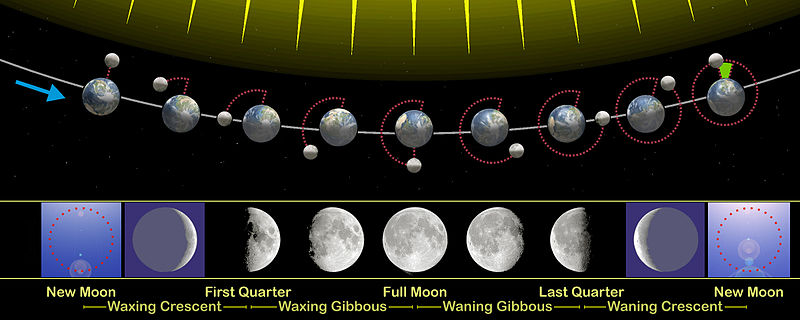Laws of nature
Bryan W. Roberts
Philosophy, Logic and Scientific Method
Ph103 - Lecture 9
Background Reading:
Carroll, Introduction to Readings on Laws of Nature,
Roberts, There are no laws in the social sciences.
It's the law
 Today we are familiar with the idea that the way to understand the natural world is to discover its laws. But this focus on laws is relatively new. Although Ovid waxed poetically about the law of nature that man is distinct from woman, laws really didn't explode into everyone's vocabulary until the scientific revolution.
Today we are familiar with the idea that the way to understand the natural world is to discover its laws. But this focus on laws is relatively new. Although Ovid waxed poetically about the law of nature that man is distinct from woman, laws really didn't explode into everyone's vocabulary until the scientific revolution.
 But with the introduction of modern science came a plethora of facts about nature that were deemed 'laws,'' and were defended as such.
But with the introduction of modern science came a plethora of facts about nature that were deemed 'laws,'' and were defended as such.
To take just a small sampling, there's Ampère's law, the Beer-Lambert law, Charles's law, the conservation laws, Coulomb's law, Curie's law, Darcy's law, Faraday's laws, Fick's diffusion law, Fourier's law, Graham's law, Henry's law, the laws of thermodynamics, Joule's law, Mendel's laws, Hooke's law, Newton's laws, Ohm's law, Raoult's law, Stokes' law, and Torricelli's law. And there are many more.
Then, in the 20th century, suddenly everyone stopped saying 'laws' again. Einstein's rule for describing gravity became called his field equation. The laws describing quantum mechanics include Schrödinger's equation, the uncertainty relations, and the exclusion principle. Perhaps people became less certain about science, or perhaps they just grew tired of so many laws.
In short, peoples' use of the word 'law' has changed in a dramatic way. We will accept that. But it's not what we're interested in.
In a philosophy, we're not interested in what people just happen to call a law. Rather, we're interested in the general character of actual laws, regardless of what someone calls them. We would like to know what sets laws apart from other facts about the world, and what kind of knowledge laws provide.
Today, we're going to study what makes a law. Then, we'll try out what we learn by asking whether or not there are laws, in particular, in any of the social sciences.
Non-tautological character of laws
There are two main properties that are generally taken to characterise laws of nature. The first is that they're not tautologies. The second is that they're "modal" character. Let's begin with the first.
A statement is a tautology if it is true by logical necessity. For example, consider each of the statements below.
1. 2+3=5

2. ¬(P&¬P) - e.g., Nothing is both a baseball and not a baseball at the same place and time.


3. Any two points on a plane can be connected by a line.

These statements are all logical tautologies. In particular, they are facts of language or a priori fact, but they are not facts about the nature. As such, it's hard to see how they could be called "laws" of nature.
Of course, people sometimes call these kinds of statements laws. Example 2, for example, is often called the law of non-contradiction. But remember, we're not interested in what people happen to say, we're interested in the general nature of laws. And this is not a law of nature, according to our definition, because it is a matter of pure logical rather than not empirial fact.
The modal character of laws
Roughly speaking, the modal character of laws means that they're the kinds of facts that could not be any different, at least, not in the same way that other more mundane facts could have been different.
To warm up to this idea, consider the following examples.
1. The earth has a single moon. vs. The moon's orbit around the earth is the shape of an ellipse.

2. Seawater is salty. vs. Table salt dissolves in water.

3. There are no gold spheres greater than 56kg in mass. vs. There are no uranium-235 spheres greater 56kg in mass.

The difference between the first and the second fact in each case is that the first fact could have been otherwise, in a sense that the second could not.
For example, our single moon could have been many. Our moon came into existence during an impact event billions of years ago between the earth and another celestial body. Some of the debris from the impact fell in on itself to form the moon. But it could have coagulated in two clumps instead of one. Or, there could have been many such impacts, or multiple objects that became caught in our orbit. Any of these possibilities could result in more than one moon.
However, the shape of the moon's orbit must be an ellipse. The laws of gravity require it. So, this fact could not have been otherwise in the same sense as the number of moons around the earth.
The same goes for seawater. As a mater of fact, all seawater is salty. But that salt just came from the particular mineral composition of the earth's crust. If the earth had formed with different minerals, then there is a sense in which the seas could have arisen without being salty.
On the other hand, when crystals of salt are placed in water, they have no choice but to dissolve. The laws of electromagnetism require it. This fact could not have been otherwise in the same sense as salty seawater either.
Finally, the non-existence of enormous 56kg gold spheres just seems to be a coincidence of geology, together with a lack of ambition among the opulant. (As of March 2014, such a gold sphere would cost about £1.5 million.) But uranium-235 is different. This highly volatile radiactive metal is used in nuclear weapons, on the principle that if its mass increases above about 56kg, it will undergo a nuclear fission reaction. And you know what happens after that.

So, there's a distinction between the fact about gold spheres and the fact about uranium-235 spheres, even though their expression is identical in form. That distinction is that there is a reason why there are no 56kg uranium-235 spheres beyond mere happenstance. That reason is a law of nature.
All of these examples show that not all facts are created equal. Some facts could have been otherwise, and some couldn't. The latter is a property that we take to characterise a law of nature, and it is this property that we refer to when we say the laws have a modal character.
Where laws get their modal character
The modal character of the laws of nature can be viewed as a kind of constraint on facts, which is not quite as severe as the constraint of being a logical tautology. But, if the constraint isn't logical, then where does it come from?
 Newton and his contemporaries thought it came from God's decree. They viewed laws as on par with some kind of divine commandments. This view has some obvious downsides.
Newton and his contemporaries thought it came from God's decree. They viewed laws as on par with some kind of divine commandments. This view has some obvious downsides.
 An alternative is to view laws as just special kinds of facts, among all the facts in the universe. But unlike normal facts, the role of a law is to constrain other facts without determining them, much as the tracks on a railway line constrain a train's motion.
An alternative is to view laws as just special kinds of facts, among all the facts in the universe. But unlike normal facts, the role of a law is to constrain other facts without determining them, much as the tracks on a railway line constrain a train's motion.
But where would such "tracks" exist, and how does the constraining work? If they are not ordinary facts about the physical world, then how do they come to have an effect on it?
A popular modern alternative to such metaphysics-heavy views is known as the Humean view of laws. On this picture, laws are just systems for describing ordinary facts, like a sentence or an equation. No further metaphysics is required. But what makes laws special, according the Humean, is that they are the best combination of simplicity and strength in description.
For example, suppose someone were to just write down an enormous list of all the positions of all the planets at each moment in time. This is certainly a strong description of the planets, in that it tells us everything about their motion. But it is not a law because there is a simpler way to get the same description using Newton's law of gravity.
Or, suppose someone were to just propose the statement there are things. This is certainly an extremely simple statement. But it is also too weak to describe anything interesting, such as the elliptical motion of planets, or the social behavior of ants.
The Humean takes laws to be the best combination of the two properties of simplicity and strength. However, much of the difficulty in this view depends on determining the precise meaning of simplicity and strength. Simplicity, in particular, can mean different things to different people. So, this view is not without its problems either.
Laws in the social sciences: A warm up
 Let's now turn to the social sciences. By that we mean any field whose aim is the study of social structures, such as anthropology, political science, economics, sociology, and so on.
Let's now turn to the social sciences. By that we mean any field whose aim is the study of social structures, such as anthropology, political science, economics, sociology, and so on.
Do the social sciences have laws? Social scientists sometimes use the language of laws, though perhaps less often than their counterparts in physics. But as we discussed above, we're not interested in how people use language. We're interested in the nature of laws.
To answer whether or not the social sciences have laws, let's warm up with a concrete example. It is among the oldest and most famous statements in economics, called the law of supply and demand.
The law of supply and demand says that the price of a market commodity increases or decreases with the ratio of demand to supply. For example, if there's a fixed supply of the latest cellphone model, and demand increases, then the law says the price of the cellphones will also increase. If there is a fixed demand and the supply increases, for example by over-manufacturing the product, then the price will decrease.

Notice that there are obvious situations in which this rule doesn't work. For example, if the government might regulate a commodity by controlling the price. Then it doesn't matter what the supply or the demand is; the price is always the same. For this reason, one normally says that the law of supply and demand holds, so long as there is a competitive market.
That "so long as" is called hedging. We say that a law is hedged if it is said to be true except for some non-empty list of exceptions.
John Roberts against laws in the social sciences
John Roberts argues that there are no laws in the social sciences. He gives his argument a lovely, clear presentation, of the kind a philosophy essay should always have. It is the following.
John Roberts' Argument Against Social Science Laws
- If there are any social laws, then they are hedged laws.
- There are no hedged laws.
- Therefore, there are no social laws.
This is clearly a valid argument, meaning that if the premises are true, then the conclusion must also be true. But of course, everything rests on these premises. If Roberts is correct about his premises, then he wins — there are no laws in the social sciences. On the other hand, if even one of his premises is false, then there may yet be laws in the social sciences.
So, let's talk about each of the premises in turn. We'll start with the second one.
Premise 2: No hedged laws?
The trouble with a hedged law is that it seems to not be very "lawlike" according to the definition we've been considering.
Go back to the law of supply and demand. We noticed one exception to the law. But there are many, many others. Here are just a few exceptions that could be noted.
- Ignorance. The buyers could be ignorant of the supply, or the sellers ignorant of the demand. In that case, an increase in supply or demand may have now effect on price.
- Irrationality. The sellers or the buyers might be totally irrational, producing, buying and setting the prices of commodities in a haphazard fashion. In that case too, changes in supply and demand do not have the predicted effect on price.
- Empathy. Factors such as empathy might have an effect on price, as when a water salesman in a drought-struck town makes water available for free in spite of the high demand.
And there are more. The danger is that, as the list gets longer and longer, we end up with a statement that basically says, the law of supply and demand is true, except when it is not.
That's not very lawlike, according to our perspective. In fact, it's a logical tautology — so by definition, it's not a law of nature.But the situation is worse than that for hedged laws. If "hedging" is allowed in the formulation of laws, then there is a worry that hedged laws cannot be empirically tested. For any exception found to such a law could always be avoided by "heading."
From the perspective of Karl Popper discussed last week, this is a very bad feature indeed. For if a hedged law cannot be falsified, then it is hard to see how it can be considered a scientific law at all.
Premise 1: If there are social laws, then they are hedged?
We have seen a sense in which the law of supply and demand is extremely hedged. There is a sense in which this is not uncommon. Rather, it appears to be the typical situation in the social sciences.
When we're talking about the facts of anthropology, of political systems, of economies, or of socieities, there always seem to be exceptions to every rule. According to Roberts, this is really an essential fact about the social sciences. The kinds of social structures they deal with always admit exceptions.
John Roberts makes the idea vivid with the following apocalyptic thought experiment. Take any statement that you might think is a law of social science. It will always be hedged, at least a little. This is because it is always possible that a huge meteor (much like the one that created the moon) will smash into the planet and destroy all social structures. The facts of the social sciences must at least hedge against that possibility.

The example is a little extreme. But it's supposed to show a sense in which hedging is inevitable when stating facts about highly contingent structures like societies. Does this kind of hedging really establish that all social laws are hedged as Roberts suggests?
This question, ladies and gentlemen, I leave to you.
What you should know
- The two main properties of laws of nature, and some examples to illustrate.
- The possible explanations of where the laws get their modal character.
- Why the law of supply and demand needs to be hedged.
- How to summarise John Roberts' argument that there are no laws in the social sciences.
- The difficulties with having laws that are hedged.
- Why John Roberts thinks the social sciences can only have hedged laws if any laws at all.